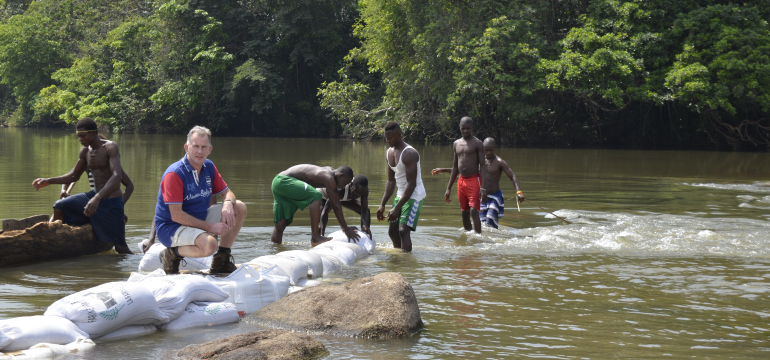Witteveen+Bos to investigate feasibility of hydro power in Sierra Leone
 Riverblade Holding B.V. has commissioned Dutch engineering and consultancy firm Witteveen+Bos to conduct a feasibility study for the small-scale generation of hydro power in the West African nation of Sierra Leone.
Riverblade Holding B.V. has commissioned Dutch engineering and consultancy firm Witteveen+Bos to conduct a feasibility study for the small-scale generation of hydro power in the West African nation of Sierra Leone.
In this project they will investigate if it is possible to use the hydro power potential of rivers to generate electricity and supply it to the grid.
The feasibility study began in July 2016, and two starting sites will be selected in February 2017. The aim of the project is to scale up to a large number of sites, and make a significant contribution towards meeting the electricity needs of Sierra Leone.
Sierra Leone is faced with massive electricity shortages. Only 10 % of the country's population has access to a reliable energy supply, even though such access is very important for a healthy home environment and economic development.
Phased approach
Riverblade was founded by Dutch entrepreneurs Donald Keus and Wouter Kreuwel, who awarded the contract to Witteveen+Bos because of the proposed phased approach to the feasibility study. Witteveen+Bos will initially prepare a longlist with approximately twelve potential sites across the country. These sites will be selected using a hydrological GIS model, based on factors including environmental impact.
Witteveen+Bos developed this model in order to perform 'quick scans' of hydro power potential worldwide, and will customise it for the specific situation in Sierra Leone. The potential sites will then be visited, whereupon Witteveen+Bos will prepare a shortlist of the most suitable initial locations to install small hydro power.
In collaboration with local partners in Sierra Leone, the researchers will conduct an environmental and social impact assessment to help select these two initial sites. The results of the initial project will be used to set up other projects for generating energy from river flows, both in Sierra Leone and elsewhere.
Small-scale energy generation
The decision to focus on small-scale energy generation from flow-based hydropower is a conscious one. These power stations are relatively easy to install with assistance from local contractors. Larger scale projects, like a dam combined with a reservoir, often have major drawbacks: they are more difficult to realise and require land to be flooded, which can have a significant impact on the human and natural environment.
Witteveen+Bos will apply its six sustainable design principles in performing this feasibility study. Engaging local stakeholders, collaborating with local companies, and translating the results of the environmental and social impact assessment into criteria for location selection are good examples of this approach.
This hydropower pilot project is being financed by the Entrepreneurial Development Bank (FMO) and the Emerging Africa Infrastructure Fund (EAIF).
This news item was originally published on the website of Witteveen+Bos.
Read also on this website
- Witteveen+Bos to study feasibility for new port in Barranquilla, Colombia, 22 July 2016
- Witteveen+Bos and MTBS working on master plan for port Cotonou, Benin, 21 October 2015
- Witteveen + Bos to lead consortium for reconstruction port of Vukovar, Croatia, 25 June 2013
More information
Witteveen+Bos
Deventer, the Netherlands
+31 570 69 79 11
www.witteveenbos.com



